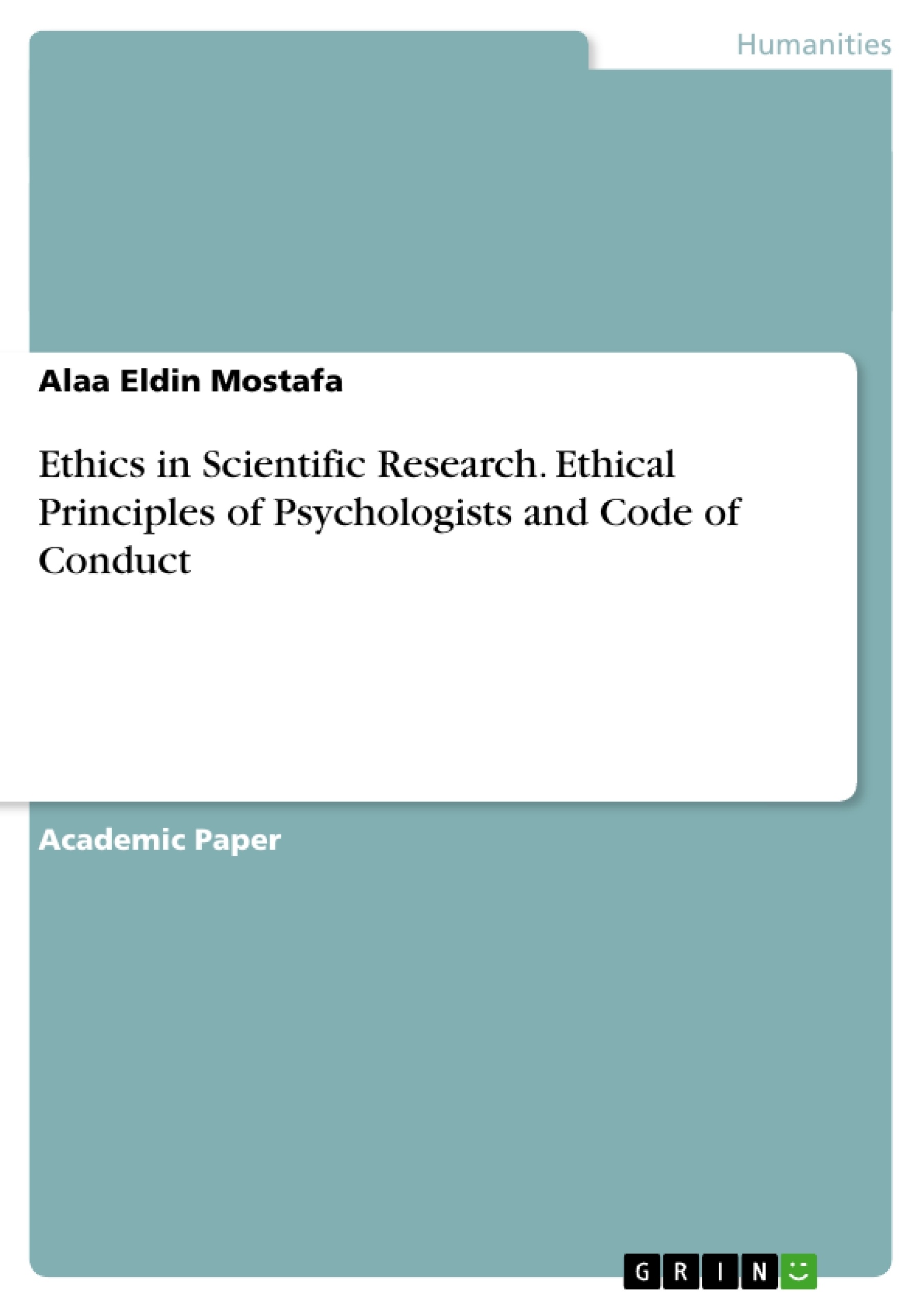The scientific research is devised and conducted based upon the professional standards of science and the foundation of public trust in the scientific community that generates the relationship between scientific integrity and society trust. Researchers have a specific responsibility to hold and apply scientific research and ethical standards in a manner that adhere primarily to these standards and to maintain a positive research environment for continued research progress. In turn, applying the ethical standards in research is crucial in order to maintain a researcher’s creditability. The aim of this paper is to introduce the importance of research ethical standards by exploring ethical requirements that researchers must meet for conducting research with human participants or with data that comes from publicly available databases.
Table of Contents
- Introduction
- Literature Review
- Ethical Standards in Scientific Research
- Respect for Persons
- Beneficence and Non-maleficence
- Justice
- Truthfulness and Accuracy
- Recommendations
- Conclusion
Objectives and Key Themes
This paper explores the importance of ethical standards in scientific research, particularly focusing on research involving human participants or publicly available data. It aims to provide a comprehensive overview of ethical requirements that researchers must meet to ensure the integrity of their work and maintain public trust in the scientific community.
- Ethical standards in scientific research
- Research misconduct, including fabrication, falsification, and plagiarism
- The impact of ethical violations on the credibility of research findings
- Recommendations for promoting ethical research practices
- The relationship between ethical standards and the public's trust in science
Chapter Summaries
The Introduction sets the stage for the discussion by emphasizing the importance of ethical standards in scientific research. It highlights the relationship between scientific integrity and public trust, and underscores the need for researchers to adhere to ethical principles.
The Literature Review delves into existing research on ethical standards in scientific research. It examines the ethical codes established by professional organizations, such as the American Psychological Association, and discusses the implications of adhering to these codes for the quality and credibility of research findings.
The chapter titled "Ethical Standards in Scientific Research" explores the ethical foundations upon which research should be built. It delves into key ethical principles, including respect for persons, beneficence, non-maleficence, justice, and truthfulness. Each principle is discussed in detail, outlining its importance in conducting ethical research.
The Recommendations chapter offers practical suggestions for promoting ethical research practices. It provides guidance for researchers on how to ensure the integrity of their work and avoid common forms of research misconduct.
Keywords
This paper explores the critical role of ethical standards in scientific research, focusing on key concepts such as research misconduct, fabrication, falsification, plagiarism, data integrity, public trust, and responsible research practices. It also emphasizes the importance of ethical principles like respect for persons, beneficence, non-maleficence, justice, and truthfulness.
- Quote paper
- Alaa Eldin Mostafa (Author), 2014, Ethics in Scientific Research. Ethical Principles of Psychologists and Code of Conduct, Munich, GRIN Verlag, https://www.grin.com/document/285936




